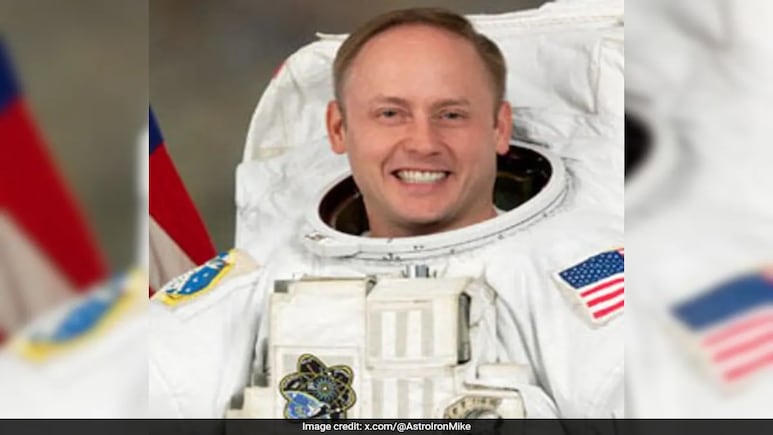
- NASA astronaut Mike Fincke is aboard the ISS as part of the SpaceX Crew-11 mission launched on August 1
- Fincke previously performed the traditional Assamese Bihu dance in zero gravity during a 2004 ISS mission
- The mission will last 6 months and focus on research for future Moon and Mars missions, including human health
NASA astronaut Mike Fincke is currently aboard the International Space Station (ISS) as part of the newly launched SpaceX Crew-11 mission. This isn't his first time in orbit. His return to space brings back a special memory of the time he danced Bihu in zero gravity.
Mr Fincke had famously performed the traditional Assamese dance during a previous expedition to the ISS in 2004. Wearing a red-and-white gamusa (an Assamese scarf) around his neck, Mr Fincke floated in microgravity, executing the traditional steps.
What's #RongaliBihu without song and dance. Here's #NASA astronaut Mike Fincke performing Bihu aboard the International Space Station in 2004.
— Anupam Bordoloi (@asomputra) April 13, 2019
Mike is Assam's son-in-law, married to Renita Saikia, who also works at NASA. pic.twitter.com/OYR8ueQOUt
Mr Fincke is married to Renita Saikia, a NASA official originally from Assam. They have three children - Chandra, Tarali, and Surya. Mr Fincke was the first astronaut to become a father while in space, as per The Telegraph.
During a visit to Assam in 2009, Mr Fincke addressed school students and encouraged them to dream big, saying, "This should not be the last Bihu in space. There should be somebody from you to dance Bihu in space."
Now, over two decades later, he is once again orbiting Earth, this time alongside fellow NASA astronaut Zena Cardman, JAXA astronaut Kimiya Yui, and Roscosmos cosmonaut Oleg Platonov. The crew lifted off from NASA's Kennedy Space Center in Florida on August 1 and will spend the next six months on board the ISS conducting research that supports future missions to the Moon and Mars.
After the members of Crew-11 enter the @Space_Station, the full station crew takes part in a welcome ceremony, marking the beginning of Crew-11's mission aboard the orbital outpost. pic.twitter.com/PL6AIpw32E
— NASA (@NASA) August 2, 2025
The Dragon capsule docked with the ISS early Saturday, August 2, and the crew was welcomed aboard shortly after. Their mission includes testing technologies for long-term space travel, studying human health in microgravity, and conducting biological and physical science experiments.
Acting NASA Administrator Sean Duffy called the launch "the first step toward our permanent presence on the Moon" and part of the Artemis programme, which aims to return humans to the lunar surface in 2026.
Track Latest News Live on NDTV.com and get news updates from India and around the world

